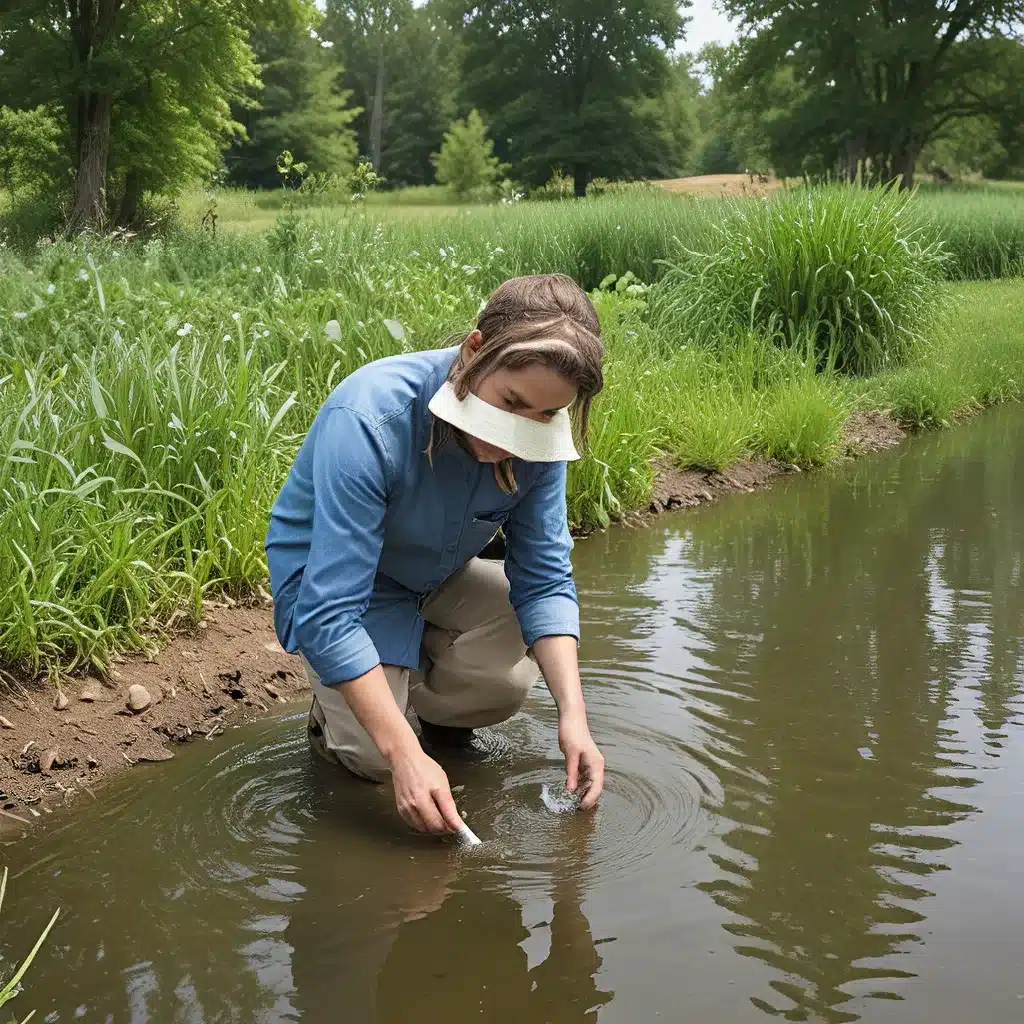
As I step out onto the lush, verdant landscape, the sun’s warm embrace caresses my skin, and the gentle breeze carries the sweet scent of native flowers. This picturesque scene, however, belies a much more complex reality – one where water scarcity and environmental degradation threaten the very foundation of our communities. But within this challenge lies an opportunity to cultivate a deep, lasting water stewardship that can transform our relationship with this precious resource.
Reclaiming our Water Future
Water is the lifeblood of our planet, sustaining ecosystems, nourishing our crops, and quenching the thirst of communities near and far. Yet, as the world’s population continues to grow, the demand for water has skyrocketed, outpacing the natural replenishment of this finite resource. In Jordan, for instance, the country’s water demand is projected to exceed available resources by a staggering 26% by 2025. This is due to a perfect storm of factors, including rapid population growth, an influx of refugees, excessive groundwater extraction, and the looming specter of climate change.
As the data suggests, more than 90% of Jordan’s rainfall currently evaporates or runs off, with less than half of the total water consumption being met by renewable supplies. This stark reality has prompted a concerted effort to change the trajectory, with organizations like the WADI project spearheading innovative approaches to water conservation.
Restoring the Land, Reviving the Water
At the heart of WADI’s mission is the belief that by cultivating a deep connection between communities and their local landscapes, we can unlock the true potential of sustainable water practices. The project’s three primary goals – establishing soil and water conservation sites, building shared ownership in water-smart practices, and promoting high-quality native seedling nurseries – are all designed to empower people to become active stewards of their natural resources.
By carefully identifying and preparing suitable native plant species, WADI is not only restoring degraded landscapes but also creating a blueprint for scaling these techniques across Jordan’s critical watersheds. “We’re not just planting trees,” explains the project coordinator, “we’re building a foundation for long-term, community-driven water conservation.”
Through rigorous monitoring and data collection, WADI is able to document the tangible benefits of their restoration efforts, from increased surface water runoff to deeper soil moisture and potential aquifer recharge. This scientific evidence is then used to model the feasibility of applying these practices in other water-stressed regions, creating a ripple effect of sustainable water management.
Engaging the Next Generation of Water Stewards
Investing in the future is a crucial aspect of WADI’s approach, and the project recognizes the vital role that youth play in securing a water-resilient tomorrow. “Seventy percent of Jordan’s population is under the age of 30,” the coordinator notes, “so engaging young people is essential if we want to see lasting change.”
WADI’s educational outreach programs in schools and universities aim to raise awareness about pressing environmental issues, from rangeland degradation and deforestation to water scarcity and climate change. By sparking a sense of ownership and responsibility in the next generation, the project is cultivating a cadre of passionate water stewards who will carry this torch long into the future.
Empowering Women, Empowering Communities
Another integral component of WADI’s approach is its focus on empowering women as agents of change. “When women play an active role in natural resource management,” the coordinator explains, “the benefits reverberate throughout the entire community.”
This philosophy has led to the establishment of the first women-run community nursery in the town of Sabha, Mafraq, where local women use state-of-the-art techniques to produce high-quality native seedlings for landscape restoration. By providing these women with the skills, resources, and platform to contribute to their local ecosystems, WADI is fostering a sense of shared ownership and collective responsibility for the water resources that sustain their communities.
Cultivating a Culture of Water Stewardship
As I reflect on the transformative work of the WADI project, I can’t help but feel a sense of awe and inspiration. This is not just about restoring landscapes or improving water access – it’s about cultivating a fundamental shift in how we perceive our relationship with the natural world.
Through strategic partnerships with the Jordanian government, local and international NGOs, and community organizations, WADI has positioned itself as a knowledge broker and producer, sharing scientifically sound information that benefits the people and watersheds of Jordan. By creating an informed network of restoration practitioners, the project is disseminating best practices and empowering communities to take ownership of their water futures.
Ripples of Change, Waves of Hope
As I walk back through the lush, verdant landscape, I can’t help but feel a sense of hope for the future. The work of WADI and others like it is not only transforming the physical environment but also the very fabric of our communities. By engaging people at all levels – from youth to women to local leaders – these initiatives are cultivating a culture of water stewardship that can truly change the course of our water-scarce future.
“This is not just about restoring landscapes,” the WADI coordinator reminds me, “it’s about creating a future where every person, every community, and every ecosystem thrives on the abundance of water.” And as I take in the beauty of this reclaimed oasis, I can’t help but believe that this future is within our reach.
So, let us join hands and embrace the challenge of water stewardship, for in doing so, we not only secure the health of our planet but also the vibrancy of the communities we call home. After all, Inland Waters Inc. is committed to helping communities like these navigate the complexities of water management and environmental services, ensuring a sustainable future for all.


